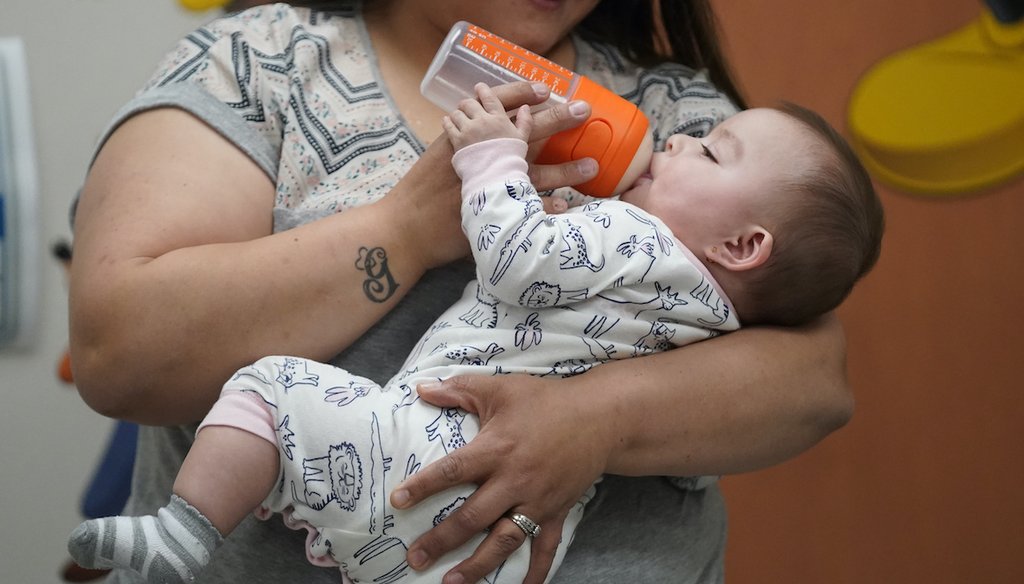

Our only agenda is to publish the truth so you can be an informed participant in democracy.
We need your help.


Elizabeth Amador bottle feeds her daughter Destinee, 9 months, at the Ellis R. Shipp Public Health Center Thursday, May 12, 2022, in West Valley City, Utah. The Biden administration is seeking to address a nationwide baby formula shortage. (AP)
• The U.S. Food & Drug Administration advises against making homemade formula and says consuming it can result in adverse health effects for infants.
• The American Academy of Pediatrics also strongly advises against homemade formula, saying it isn't safe and does not meet babies’ nutritional needs.
The Facebook post makes it sound deceptively simple: To circumvent a nationwide shortage of baby formula, just make your own. But experts strongly disagree.
The May 11 post says people can follow a 1960 recipe for homemade baby formula as a workaround during the current shortage. It shows a photo of the recipe, with ingredients that include evaporated milk and Karo syrup.
The caption says, "Y’all, I felt this was pertinent information to share considering the shortages we are facing with our babies. I personally have not used this method yet but glad to have the details just in case!"
The post was flagged as part of Facebook’s efforts to combat false news and misinformation on its News Feed. (Read more about our partnership with Facebook.)
A Facebook post says people can follow a 1960 recipe for homemade baby formula as a workaround during the current shortage.
But the FDA advises against it, and says consuming homemade formula can result in adverse health effects for infants. And the American Academy of Pediatrics also strongly advises against homemade formulas, saying they are not safe and do not meet babies’ nutritional needs.
We rate this claim False.
CBS News DFW, "Pediatricians warn against unsafe formula alternatives amid shortage," May 12, 2022
Facebook post, May 11, 2022
Healthychildren.org, "Is Homemade Baby Formula Safe?" May 9, 2022
Healthychildren.org, "With the baby formula shortage, what should I do if I can't find any?" May 11, 2022
KXAN, "FDA: Don’t feed infants homemade formulas," April 4, 2021
NBC News, "White House announces measures to address baby formula shortage," May 13, 2022
New York Times, "Why Doctors Don’t Recommend Homemade Baby Formula," May 11, 2022
The Atlantic, "What’s Behind America’s Shocking Baby-Formula Shortage?" May 12, 2022
U.S. Food & Drug Administration, "FDA Advises Parents and Caregivers to Not Make or Feed Homemade Infant Formula to Infants," Feb. 24, 2021
U.S. Food & Drug Administration, "FDA Takes Important Steps to Improve Supply of Infant and Specialty Formula Products," May 10, 2022
White House, "Background Press Call by Senior Administration Officials to Address Infant Formula Shortage," May 12, 2022
In a world of wild talk and fake news, help us stand up for the facts.
